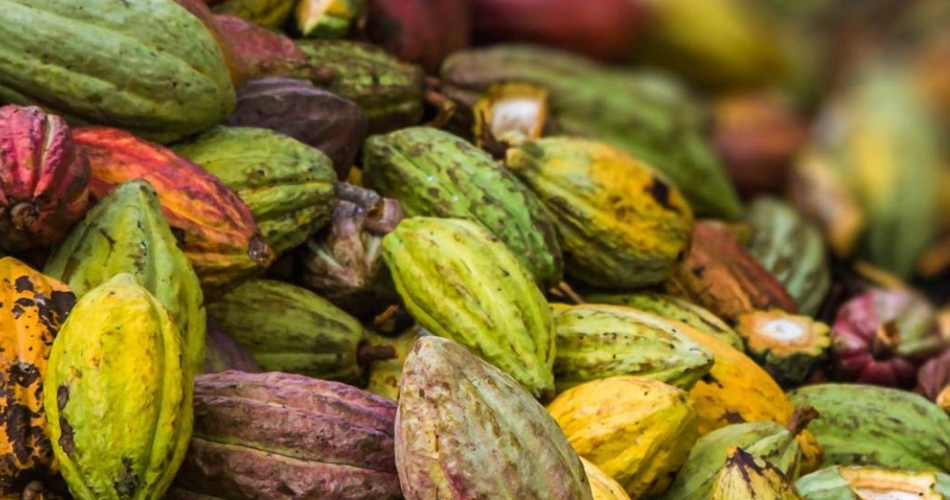Author: Bogota Team, New Zealand Trade and Enterprise
Colombia’s agribusiness sector is looking for solutions that improve productivity and yield without using more land. In this interview with Ricardo Jaramillo, co-founder of Grupo Novo Agro, he details where the opportunities lie.
Colombia’s agribusiness sector has a promising future ahead, notably in the horticulture and meat sectors. According to the UN Food and Agriculture Organisation (FAO), Colombia could become one of the great pantries of the world and ranks 25th out of 223 countries that are expanding their agricultural area, without affecting natural forest areas.
According to FAO, 80% of the amount of food that will be required by 2050, must be provided by greater productivity. How can agricultural production be more efficient when only 20% will correspond to new areas? This is a great transformation challenge for the Colombian agricultural sector, which will need: genetic improvements, cutting-edge technologies, precision agriculture, automation, core development, economies of scale, added value, and focus on market demand.
NZTE Bogota team members, Elvira Martinez and David Aubergier, chatted with Ricardo Jaramillo, co-founder of Grupo Novo Agro. Ricardo is passionate about agriculture, technology and innovation. He shares his thoughts on Colombia’s agribusiness sector and its potential for New Zealand agritech businesses.
What are your expectations for Colombia’s agribusiness sector?
Colombia’s immense biodiversity offers a wide range of agroecological conditions allowing the country to produce a great variety of products throughout the year. With the use of information technology and mechanisation, we hope to improve productivity and increase exports of products such as avocado, mango, passionfruit and cocoa.
In the livestock sector, the lowland tropics have gained strength with new high-productivity, grass-fed dairy breeds and animals adapted to the agroecological conditions. The challenge ahead is for over 2.8 million farmers to adopt new technologies so that we can increase exports to US$20 million in the next five years.
What are the current trends in Colombia’s agribusiness sector?
Information technology is creating a turning point between traditional and new agribusiness in Colombia. Examples of this are software-based admin platforms for tropical agricultural companies, image interpretation, algorithms to predict tropical crop yields, and marketplaces that connect farmers with suppliers, technology and buyers.
Furthermore, mechanisation and infrastructure play a key role in increasing productivity, packing plants, sorting, irrigation and greenhouses. Vertical farms are taking off in export crops, especially fruits and vegetables.
Sustainability and regenerative agriculture are the production methods that have attracted the interest of the most organised value chains with a global vision.
What opportunities do you see for New Zealand agribusiness companies in Colombia?
New Zealand companies offer products and services adapted to the crops and value chains that align well with Colombia’s strengths. These New Zealand products have already been tested in different countries, proven to be cost efficient. In Colombia, local producers have improved their efficiency and access to new markets.
Key opportunities include infrastructure for the dairy and fruit sectors. In terms of technology, there are opportunities in knowledge transfer platforms, education, data analytics, data capture devices, control and management of labour-intensive crops, use of robots for different tasks within the value chain, and image analysis.
In terms of trade, Colombia is well-located; via the Atlantic and Pacific Ocean, Colombia has access to more than 1.8 billion consumers, tariff-free. Furthermore, with planting, production, and post-harvest technology, in addition to the business contacts that New Zealand companies have, many projects could be carried out in partnership with Colombian producers and investors.
What advice would you give to New Zealand companies interested in exploring the Colombian market?
It is important to keep in mind that Colombia is a very diverse country – in both its culture and weather conditions for agriculture. This creates significant opportunities for companies that can adapt their solutions in order to be effective under the local conditions that growers and livestock producers face.
Additionally, I would recommend looking for local partners. Colombians are friendly, responsible, and highly capable; combining the abilities of both Colombians and New Zealanders will surely provide excellent business opportunities to develop agriculture, not only in Colombia but also in Latin America.
Ricardo Jaramillo is a serial entrepreneur, founding several businesses in Colombia to support his vision for Colombian agribusiness sector. He is the co-founder of Grupo Novo Agro (Agrofuturo) whose purpose is to connect the agricultural ecosystem with access to smart capital, technology, knowledge, and markets.
He also founded Agrilink, an agribusiness focused event company (Expo Agrofuturo, World Avocado Congress, Territorio Aguacate, Agro Investment Latam, and Agstar); Agricapital and Agrow, that respectively offer microcredits for small farmers and manage agricultural assets through private equity funds. In 2017 Ricardo and his partners launched Croper.com, a marketplace that connects agricultural producers without intermediaries with suppliers of inputs, buyers for their products, financial services, and technical advice.
Become an NZTE customer today.
NZTE is a Strategic Partner of Techweek2021
